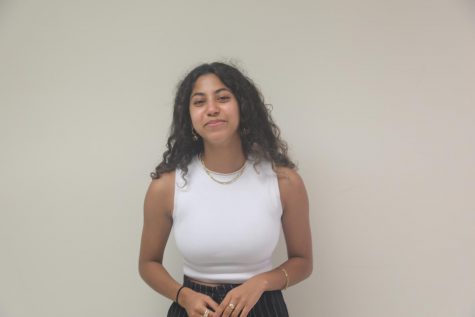Appreciate your body
February 17, 2022
It started off so innocently, and I think that is the case with a lot of people who struggle with eating disorders (EDs). A few months into quarantine, I felt influenced by social media to eat healthier and be more active because of this newfound free time I had in isolation.
A two-week workout plan and tracking what I ate in a day quickly turned into this obsessive need to count every single calorie that went into my body and workout daily past exhaustion. I knew what I was doing was not right nor healthy for me, but it was the only thing I had control of at the time.
The National Eating Disorders Association (NEDA) has reported a rise in eating disorders worldwide since the start of the COVID-19 pandemic. A big reason for this, at least for me, has to do with a lack of control. Eating disorders are often fueled by the need for control, which can be found in disordered eating. In a time where everything is changing and there is no consistency, I relied on my ED to feel grounded at times. However, the harm that it has done to both my mental and physical health is not worth any feeling.
Since starting my recovery journey, I learned to appreciate my body for more than just the way it looked. It is thanks to my body that I can make memories, I can enjoy spending time with the people I love, and I can engage in all of the activities that I am passionate about.
And this is an important message that I think everyone–whether they have experienced disordered eating or not–should take the time to understand. In a world where the media is constantly fixated on celebrities’ bodies and ever-changing beauty standards, it is no wonder that there are things like eating disorders and body dysmorphia. And this is not limited to EDs, but also an increasingly negative self-image and desire to meet unrealistic beauty standards. What helped me the most was seeking help. I would not have been able to reach the point that I am in recovery if it was not for the support of therapists, doctors, and dieticians that helped me to understand the importance of fueling myself properly, while also accepting all of the joy that food can bring.
If you or someone you love are struggling with an ED, contact the NEDA at 1-800-931-2237.



















![Movie poster for '[Rec]" (2007).](https://www.lionnewspaper.com/wp-content/uploads/2023/04/rec-640x900.jpg)


